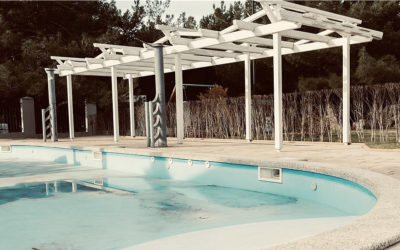CLAIMS
European Consumer Claims – holiday ownership claims in Spain
On March 16th, 2015, a ruling set by the Spanish Supreme Court came into effect following the European Directive (implemented in Spain by Real Decreto–Ley 8/2012). This ruling regulates timeshare, long-term holiday products, resale and exchange products and have set a precedent that has brought about big changes to the timeshare industry.
On 29th March 2012, the Spanish parliament validated Real Decreto-Ley 8/2012 transposing the timeshare directive, which was then submitted to the European Commission. All member states of the EU then transposed the directive into their national law.
The timeshare directive, which replaces an older directive from 1994 (Directive 1994/47/EC), was created to provide significant protection for consumers against unwanted timeshare contracts and contracts on similar holiday products, which often bear considerable financial risks for consumers.
In particular, it has extended consumer protection to additional holiday products for instance, holiday ownership contracts for a period under three years, holiday ownership resale contracts, holiday ownership exchange schemes and long-term holiday products such as participation in holiday discount clubs. From this arose a uniform EU-wide 14-day cooling-off period, during which consumers may consider the purchase and withdraw from the contract while vendors may not ask for any payments.
The significance of this sector is demonstrated by the fact that roughly 1.5 million European households are timeshare owners, with more than one third coming from the UK and Ireland, the highest number of resorts being located in Spain.
Under the directive, traders must provide detailed information to buyers in good time, before the buyer is bound by any contract. The information must include the price to be paid, a detailed description of the purchase including the timeshare location and number and the exact period and length of stay that the buyer is entitled to under the contract. This information should also be provided in the buyer’s language if they so choose.
The directive also ensures that consumers may withdraw from a contract within a “cooling-off” period of 14 calendar days and that traders can never ask them for any form of advance payment or deposit during that period. Before the conclusion of the contract, the seller is particularly required to draw the consumer’s attention to the existence of the right of withdrawal, the length of the withdrawal period and the ban on advance payments during the withdrawal period.
Spanish Supreme Court Ruling
On January 15th 2015, a ruling by the Spanish Supreme Court came into effect as a result of the previously mentioned European directive (Real Decreto-Ley 42/98).
The court ruled in favour of a Norwegian national who argued that the “in perpetuity” clause of her timeshare contract with Anfi Resorts was illegal according to EU law.
The Norwegian woman was awarded a full refund as well as the interest she had paid, legal fees and double the amount she paid for her deposit, by the Spanish Supreme Court in March, giving fresh hope to others locked in similar holiday ownership disputes.
In the case against the Gran Canaria-based Anfi Group, the judge ruled that an “in perpetuity” clause broke Spanish law, which states that no timeshare agreement signed after January 5 1999 can last more than 50 years. This rendered the whole contract invalid, and the court ordered Anfi to refund all payments as well as interest and legal fees.
This has subsequently had a huge impact on many owners who signed their contract after 5th January 1999 and has opened up more possibilities to these owners in their hope to escape their contract.
The ruling states that resorts are obliged to give clients a 14 day ‘cooling-off period’ which is designed to give consumers adequate time to consider the purchase. It is illegal to accept any monies or have the client sign for any finance agreement during this period.
Also, they ruled that any timeshare sold since the beginning of 1999 must state the details of the apartment/unit/week(s) bought, together with the time of arrival and departure. Failure to comply with these rulings can end up with the contract being cancelled with buyers eligible to receive a full refund on all monies spent on the purchase of their holiday ownership.
The main focus points of the ruling are:
- That there is a 14 day cooling-off period
- That clients must be informed of this cooling-off period before signing any contract
- No money can be accepted at signing of the contract or within the 14 day cooling-off period
- All contracts must be put in writing
- Before signing any contract, certain points of information must be made clear to the client, in their language, so that the client is fully aware of all conditions. If this is not done, the contract is deemed null and void.
- The contract must be offered in the language of the buyer.
- If a contract is cancelled by the client, for example during the cooling-off period, then all other related finance agreement contracts would also be cancelled.
- That a contract can run for no longer than 50 years.
Find Out Your Holiday Ownership Exit & Claim Options Today!
Get free, no obligation advice from our holiday ownership specialists...
Or call us on 0203 7699 164
Latest news from ECC
UK timeshare owners suffer from airport chaos
Flights are being cancelled from all over the UK to many European holiday hotspots due to staff shortages. Whilst many holidaymakers are planning...
M1 Legal sets another record for the most money awarded in a single week, just 2 months after it broke the last record
What made people buy timeshares in the first place?
Many holiday experts now widely accept that timeshare is a bad deal and makes no financial sense. So, what made people buy it in the first place?...
M1 Legal celebrates a huge month in April 2022 with rewards of half a million pounds
M1 Legal has been fighting for customers of one of the oldest timeshare complexes in Spain for six years, and their diligent work has started to pay...
How do timeshare costs compare to regular holidays?
Timeshare owners were tempted in the past by two important benefits. Firstly, they would enjoy higher standards on their holidays, and they would...
Services slashed as sales ground to a halt at timeshare resorts
Members are angry at a lack of amenities and services they paid for being provided at large timeshare companies like Club La Costa, Diamond Resorts...





